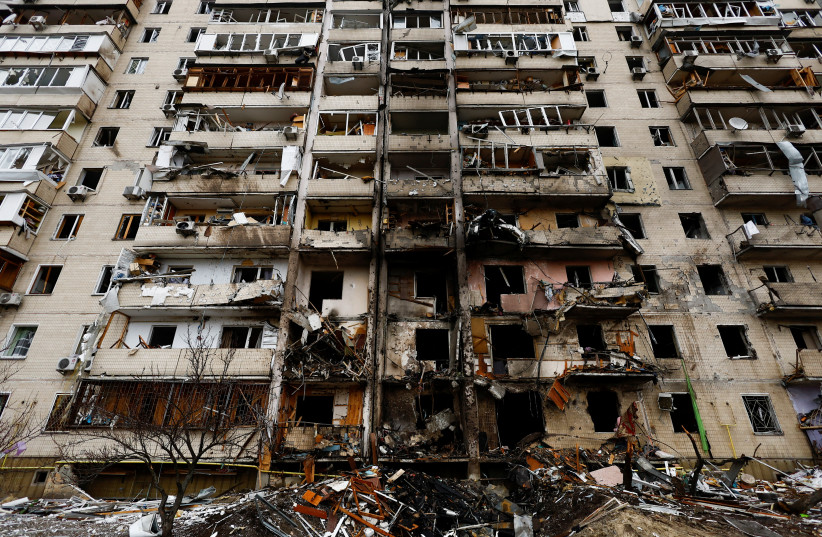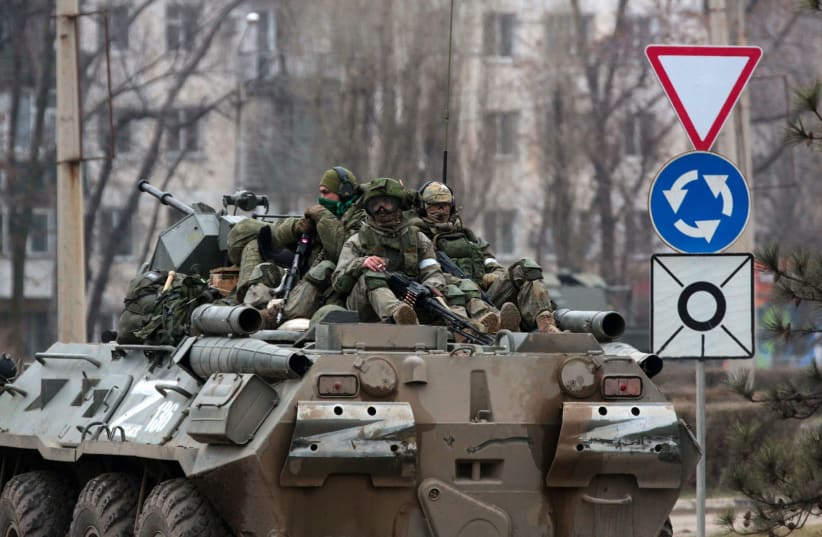In many ways, this week saw the death of international law.
To be sure, Russia's invasion of Ukraine did not end international law's existence or its place in public debates among Western countries.
But if there was a narrative created since the fall of the Soviet Union in 1991 and the establishment of the International Criminal Court in 2002, it was that democracy and international law were on the rise. Now, that narrative seems to have been squashed.
Read more on the Ukraine-Russia War:
- Day 2 of the Ukraine-Russia War
- The Ukraine-Russia conflict echoes loudly in the Middle East
- The invasion of Ukraine makes it obvious: The IDF will fight its own battles, alone
- Russian invasion of Ukraine is bad, nuclear Iran is worse

The reasons are simple.
Two of the most important principles in international law are upholding the sovereignty of nations from an armed attack and protecting civilians from the scourge of war.
Allowing Russia to invade and trample Ukraine is essentially allowing the violation of these rules on Europe’s doorstep. The consequence is that international law appears to look today like a farce.
It is no coincidence that Chinese officials have upped their threats to conquer Taiwan and other areas in the South China Sea and many Iranian officials have also begun to express greater confidence about their hegemonic ambitions across the Middle East.
Europe can be counted on to be the loudest in condemning Israel when Jerusalem defends itself in conflict with the Palestinians, Hezbollah and other neighbors who attack it.
To many of these critics, since the Palestinians and other adversaries appear weaker than Israel, the Jewish state gets very little credit for showing restraint, trying to avoid civilian casualties, or for avoiding holding on to parts of Gaza or Lebanon once the conflict is over.
These same critics are also righteous when it comes to criticizing the United States for "war crimes" the American military makes in operational errors caused overseas while fighting terrorists.
But what is the point of all of their pristine philosophical arguments if strong countries can ignore the largest war crimes, without any show of restraint?
What this exposes is what has been clear from the cases that the ICC takes on.
International law is for cases in which strong Western countries can force a weaker country to turn over a former leader for atrocities or when a former weaker country leader is toppled by his own people and turned over.
It can also be used hypocritically by a large volume of dictatorships to gang up on countries like Israel because of their geopolitical dislike of the Jewish state.
Yet, the power of the ICC and international law stops when it comes to strong countries like Russia or China.
The recent Winter Olympics showed how little Beijing cares about criticism from the United Nations or the West and how quickly countries and organizations – thought to be liberal democracies – are ready to bend over backward to find ways to remain on China's good side.
Ultimately, it is not that international law is irrelevant; it can still help against bad weaker countries and in areas such as the environment in which agreements can be reached between countries.
But in matters of war and peace with great powers like Russia, it is a mirage without real teeth and can only be effective when the West is willing to shed its own blood to keep the peace. In Ukraine, so far, that is not happening.
